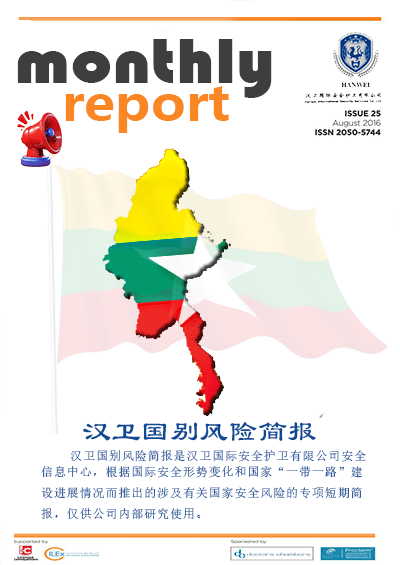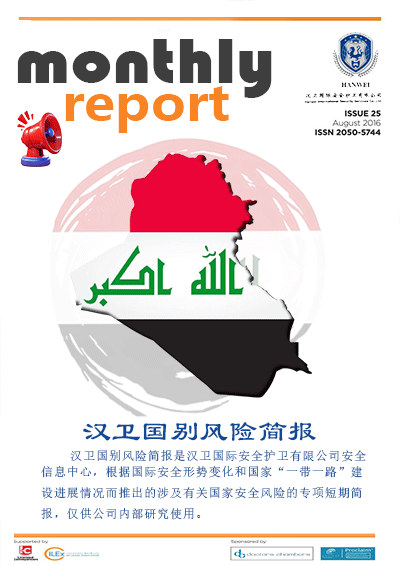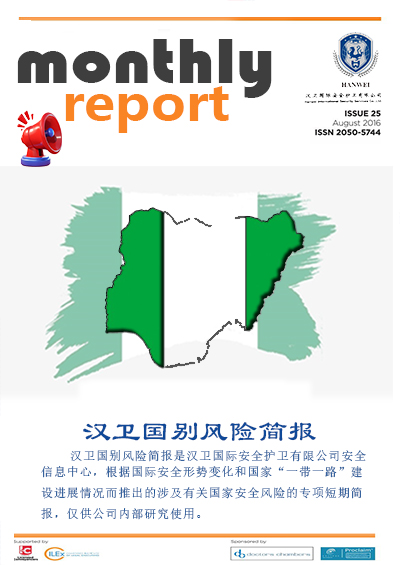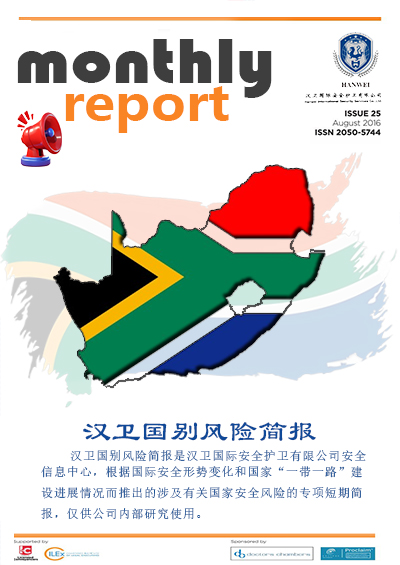Iraq Security Situation Overview July 2024
According to monitoring reports from Hanwei International's security officers in Iraq and media reports, nearly 200 representative security incidents occurred in Iraq this month (incomplete statistics), including armed conflicts/attacks and terrorist incidents. This report focuses on analyzing major social security incidents with significant impact that may threaten the lives and property of Chinese citizens in Iraq, serving as a warning: safety first when abroad!
Hanwei International analysis indicates that Iraq's overall security situation this month is concerning, facing "internal and external challenges". Since the outbreak of the Israel-Palestine conflict, the U.S. has played a controversial role, even "adding fuel to the fire," casting doubt on its proclaimed goals of "promoting regional peace and stability" and "advancing democracy and human rights" in the Middle East. The U.S. military presence in Iraq has further drawn dissatisfaction and protests from local armed groups and civilians. This month, the quota-based political power-sharing system established under U.S.-led "democratic reforms" has led to prolonged delays in electing a new speaker for Iraq's Council of Representatives. Additionally, the Federal Reserve instructed Iraq to halt direct trade settlements in Chinese yuan, further demonstrating U.S. economic hegemony. Could these actions further inflame local resentment toward the U.S. presence? Externally, the spillover effects of the Israel-Palestine conflict have destabilized the region, with Turkey-PKK and Israel-Lebanon conflicts dragging Iraq into the fray.
Key developments include:
1. Could the U.S. political and economic presence in Iraq trigger further conflicts? As the Israel-Palestine situation escalates, the U.S. military presence in Iraq remains contentious, viewed as exacerbating tensions and violating Iraqi sovereignty. Iraqi militia groups have emphasized using military means to "expel" U.S. forces, with frequent attacks on U.S. bases, including recent threats to "resume military operations against U.S. sites." On July 16, the Ain al-Asad Airbase in Anbar Province was attacked by two drones, with one projectile landing inside the base but causing no casualties. On July 30, the U.S. conducted a "defensive airstrike" in Babylon Province's Musayyib, targeting armed militants allegedly preparing a drone attack, killing at least four and injuring others, prompting a state of alert in Babylon. Meanwhile, U.S. political and economic interference has intensified. The Council of Representatives speaker election remains stalled, with the Shi'a Coordination Framework threatening to use its majority to appoint a speaker if Sunni factions fail to agree. On July 11, Iraqi MP Mueen al-Kadhimi revealed that the Federal Reserve forced Iraq to suspend yuan trade settlements under pretexts of "violations," highlighting U.S. financial pressure for political motives.
2. Escalating regional tensions surrounding Iraq. On July 30, Israel's drone strike in Beirut killed senior Hezbollah commander Fuad Shukr. On July 31, Hamas leader Ismail Haniyeh was assassinated in Tehran. These high-profile killings risk worsening Israel's conflicts with Hezbollah, Hamas, and Iran. Earlier, on June 30, Iran-backed Iraqi militias attacked Israel's Eilat with drones, while on July 9, joint Iraq-Yemen operations targeted Eilat, with Houthi spokesperson Yahya Saree vowing continued cooperation with Iraqi militias to support Palestine.
3. Turkey-PKK "routine" clashes and Iraq's counter-ISIS operations. Turkey conducted multiple airstrikes in northern Iraq, killing PKK members: 10 on July 2, 14 on July 15 in Metina and Gara, and 25 on July 26, destroying hideouts and killing senior militants. Meanwhile, U.S. Central Command reported 137 joint counterterrorism operations with Iraq in H1 2024, killing 30 ISIS members and detaining 74. Iraqi forces arrested 3 ISIS suspects in Anbar on July 8, killed 3 (including a high-value target) in northern Iraq on July 19, and detained 9 across four provinces on July 26.
Hanwei International assesses that Iraq's security situation remains precarious amid "internal and external challenges". The U.S. role in the Israel-Palestine conflict has drawn criticism, while its military and economic presence in Iraq fuels local resentment. The speaker election deadlock and yuan settlement ban reflect U.S. interference, potentially exacerbating anti-U.S. sentiment. Regionally, spillover from the Israel-Palestine conflict, Turkey-PKK clashes, and Israel-Lebanon tensions further entangle Iraq.
Recommendations for Chinese entities and individuals in Iraq:
1. Monitor political and economic developments closely and prepare accordingly. With regional tensions rising, Iraqi militias' attacks on U.S. sites may trigger retaliation. Perceived U.S. encroachment on sovereignty could spark protests or militia actions. Avoid political discussions in public, steer clear of demonstrations, stockpile essentials, and enhance security measures.
2. Avoid high-risk areas and maintain vigilance. Avoid Turkey-PKK conflict zones and ISIS-prone remote areas. Plan travel securely, stay alert to news, and prepare contingency plans.
For emergencies, contact China's 24/7 consular hotline: +86-10-12308, +86-10-65612308; Chinese Embassy in Iraq: +964-7901912315.




